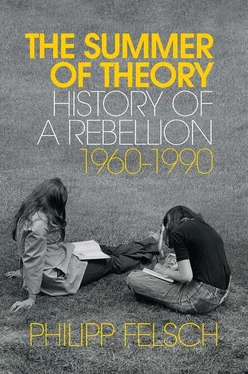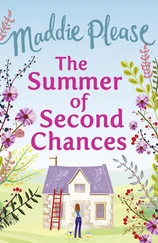1 ...7 8 9 11 12 13 ...19 The group of senders was not limited to young intellectuals. There were also many older Germans among the music enthusiasts who asked Adorno for musical assistance. ‘I would like to know whether you consider Weber’s aria “Through the Forests, through the Meadows” to be light or serious music.’ 66That question came from a woman who had known Adorno’s aunt before the war. And what about the businessman from Wuppertal who assured Adorno that he was ‘also a nonconformist, which you may perhaps see by the fact that I have just returned from a rather unusual sojourn, called a monastic retreat, during which I joined the community of a Benedictine abbey for a fortnight’? 67There is no answer to this letter in the archives. As his celebrity grew in the course of the sixties, Adorno found himself more and more often in the situation of having to ward off false friends. A former classmate who felt it incumbent upon himself to point out a gap in the author’s knowledge of physics was dismissed with the words:
You are not the only one of my childhood friends to seek contact with me again after a hiatus of decades, and to be so obviously plagued by resentment that that contact is disrupted in the very moment at which it is supposed to be renewed, and in view of the fact that my name has made the rounds, I can’t even defend myself properly against the resentment without being mistaken for a snob. 68
Adorno was prompt, however, to respond helpfully to a letter that arrived in 1968 from Amorbach, the paradise of his childhood in the Odenwald forest. The girl from the stationery shop over the road from the hotel where his family had spent the summer holidays before the war asked him to intervene with the government of Lower Franconia in opposition to a planned ring road. By return post, Adorno petitioned the politicians in Würzburg to ‘refrain from everything that could make this unique place ugly’. 69
Adorno felt an obligation to answer letters, and was hence afflicted by the number he received. Again and again, he pointed out in his replies that it was not his task to interfere ‘in the casuistry of anyone’s specific problems’. 70He even complained occasionally of a ‘torrent of filth’ pouring down on him. 71His radio lectures were regularly followed by hate mail, and the project-initiators and amateur philosophers who wanted to involve him in their planning exercises were probably not his cup of tea, either. He had nothing to say about the ‘spectral analysis of reason’ which a legal counsellor from Darmstadt had thought up in a Russian prisoner-of-war camp, nor about the ‘international intellectuals’ unions’ that a writer in Duisburg thought necessary. 72He kept the astrologers at arm’s length too, who carried on a kind of personal feud with him after the publication of his analysis, written in exile in California, of the Los Angeles Times horoscope rubric. 73
Adorno’s best moments as the post-war Germans’ friend in need had to do with their situations of intellectual and existential distress. His correspondence with readers illustrates the strictures of a society in urgent need of the ’68 generation’s cultural revolution. ‘Dear Professor Adorno’, the moving letter of an 18-year-old Viennese art student begins:
My homophile disposition itself would not pose me any problems if I were not confronted with an ignorant, hateful, tyrannical world which tolerates no ‘difference’. It would help me a great deal if I could read something now and then that counterbalances the lies of my surroundings with a true and human attitude. Dear Professor Adorno, please send me the title and address of a good homosexual periodical so that I can subscribe to it. I am young and desperate, but I don’t want to lose faith in myself. 74
In his answer, Adorno recommended reading André Gide and encouraged the writer not to surrender ‘to conformism’. However, he was unable to recommend a homosexual magazine, ‘much as he would like to’, as he himself felt ‘not even the slightest inclination in that direction’. 75If there seems to be a hint of antipathy here – of which Adorno can be suspected elsewhere, too – it did not diminish the art student’s gratitude. ‘I was honestly surprised and startled at the length of your reply’, he wrote back. ‘I appreciate your service to all humanity (of which we homosexuals are only a negligible part).’ 76
A philosophy student from Berlin felt the same as she struggled to cope with the feeling of hopelessness that had possessed her after reading Adorno’s works. ‘Thinking about what I was reading and trying to think through other matters myself’, she wrote in the summer of 1966:
the more clearly I recognized the total negativity, the less I was able to understand how there could be any hope. I can no longer feel the exhilarating ‘air of other planets’ as anything but a promise of the impossible; I cannot grasp the last sentence of the Minima Moralia . And I can’t find anyone who could help me somehow. Because I cannot bear to go on living and talking as if it were possible to lead a light-hearted personal life, I have broken off personal contacts that were of no help in my search for some possibility of hope, but only made me more desperate with their spiritual emptiness. 77
Confronted with the potential side effects of his ideas, Adorno responded immediately. He warned his reader against doing anything rash, and suggested a personal meeting. ‘The way from thinking to so-called practice’, he pointed out, ‘is much more convoluted than is generally imagined today.’ 78Apparently, his tactics of reassurance had the desired effect, for his correspondent was feeling much better in her next letter. She thanked him for a meeting that had changed her life – and that in the tones of a true disciple: ‘You thought it somewhat odd that I should look to you of all people for consolation when I felt that “everything is so bleak”; I realized only afterward that I was not looking for hope, but for solidarity in my hopelessness.’ 79
Are Your Endeavours Aimed at Changing the World?
Peter Gente did not seek Adorno’s help. In October of 1965, he wrote to him on a matter that was apparently purely philological:
Some weeks ago I read the special issue of the journal Sinn und Form on Hanns Eisler. The issue contained reprinted excerpts of Composing for the Films . I immediately borrowed that book and was quite perplexed. Did Eisler really write it? It reads like a digression from the Dialectic of Enlightenment , and yet the manuscript was allegedly completed as early as 1942! I suspect that you are the real author and would be grateful for confirmation. Please allow me to send you my best wishes and very warm regards. 80
This tone of respectful distance is how a disciple addresses his master. Adorno’s answer betrays that he felt quite flattered: ‘As to your suspicions concerning the book Composing for the Films , you have guessed the truth. I believe I can say without doing Eisler any injustice that nine tenths of the book are mine and one tenth at most was written by him.’ The reason for leaving Adorno’s name off the title page, he hinted, was Joseph McCarthy’s campaign against supposed communists: in 1947, just before the book went to press, the House Un-American Activities Committee had begun its first hearing – against the brothers Hanns and Gerhart Eisler. ‘Under these circumstances’, Adorno explained, ‘I felt it was right not to declare my authorship, trusting that people who took an interest in my work would notice it in any case. After so many years, you are one of the first.’ In concluding, he asked Gente to treat his message as confidential, since ‘in the climate currently prevailing in our country, some people would naturally try to exploit the matter’. 81
Читать дальше












